
Filter News
Area of Research
News Type
News Topics
- (-) Big Data (6)
- (-) Buildings (9)
- (-) Climate Change (15)
- (-) Cybersecurity (6)
- (-) Environment (37)
- (-) Frontier (3)
- (-) Isotopes (10)
- (-) Machine Learning (5)
- (-) Materials Science (12)
- (-) Quantum Science (2)
- 3-D Printing/Advanced Manufacturing (12)
- Advanced Reactors (2)
- Artificial Intelligence (4)
- Bioenergy (17)
- Biology (21)
- Biomedical (8)
- Biotechnology (4)
- Chemical Sciences (9)
- Clean Water (6)
- Composites (2)
- Computer Science (13)
- Coronavirus (6)
- Critical Materials (1)
- Decarbonization (15)
- Energy Storage (14)
- Exascale Computing (3)
- Fusion (7)
- Grid (7)
- High-Performance Computing (9)
- Hydropower (2)
- ITER (1)
- Materials (7)
- Mathematics (4)
- Mercury (4)
- Microscopy (9)
- Nanotechnology (6)
- National Security (15)
- Net Zero (2)
- Neutron Science (8)
- Nuclear Energy (14)
- Physics (16)
- Polymers (5)
- Quantum Computing (1)
- Security (6)
- Simulation (4)
- Summit (2)
- Sustainable Energy (13)
- Transportation (12)
Media Contacts
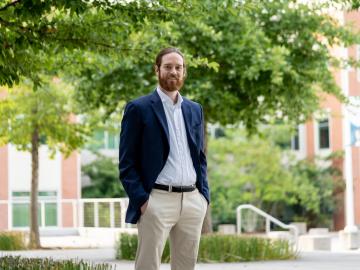
Bryan Piatkowski, a Liane Russell Distinguished Fellow in the Biosciences Division at ORNL, is exploring the genetic pathways for traits such as stress tolerance in several plant species important for carbon sequestration
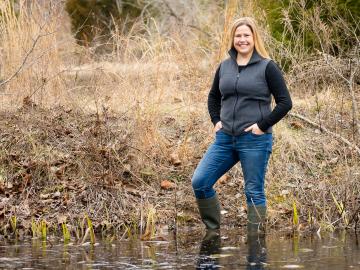
Spanning no less than three disciplines, Marie Kurz’s title — hydrogeochemist — already gives you a sense of the collaborative, interdisciplinary nature of her research at ORNL.
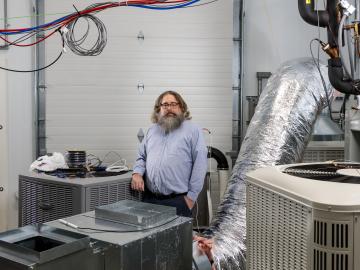
When Brian Fricke walks into a supermarket, evidence of his scientific achievement is all around in the refrigerated cases housing the fresh fruits and vegetables. As an Oak Ridge National Laboratory building equipment researcher, Fricke has a long history of making sure that produce is kept fresh in an energy efficient and environmentally sound manner.
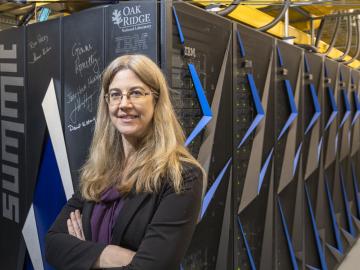
The world is full of “huge, gnarly problems,” as ORNL research scientist and musician Melissa Allen-Dumas puts it — no matter what line of work you’re in. That was certainly the case when she would wrestle with a tough piece of music.
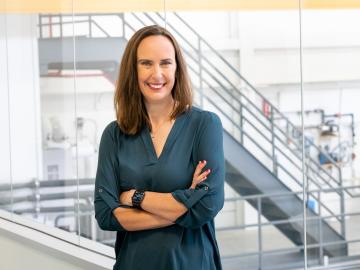
She may not wear a white coat or carry a stethoscope, but Christine Walker of ORNL spends her days diagnosing the energy health of buildings and figuring out how to improve their efficiency to achieve cost savings and reduce their carbon footprint.
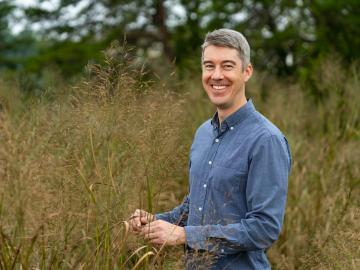
For ORNL environmental scientist and lover of the outdoors John Field, work in ecosystem modeling is a profession with tangible impacts.
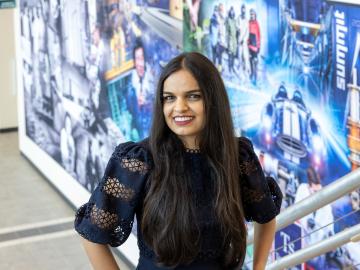
An international problem like climate change needs solutions that cross boundaries, both on maps and among disciplines. Oak Ridge National Laboratory computational scientist Deeksha Rastogi embodies that approach.
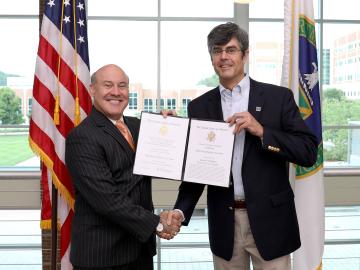
A 25-year career with the U.S. Navy, commanding combat missions overseas, brought Tom Kollie back to where he came from — ready to serve his country in a new way.
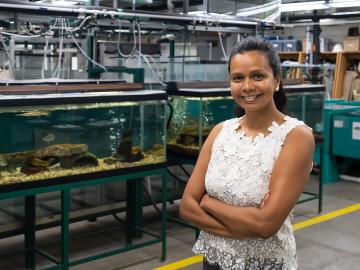
Moving to landlocked Tennessee isn’t an obvious choice for most scientists with new doctorate degrees in coastal oceanography.
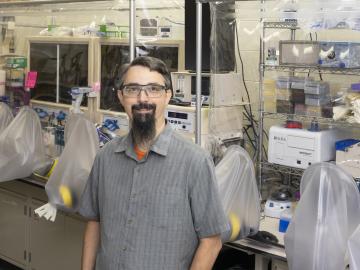
As a metabolic engineer at Oak Ridge National Laboratory, Adam Guss modifies microbes to perform the diverse processes needed to make sustainable biofuels and bioproducts.


